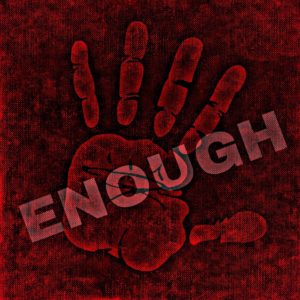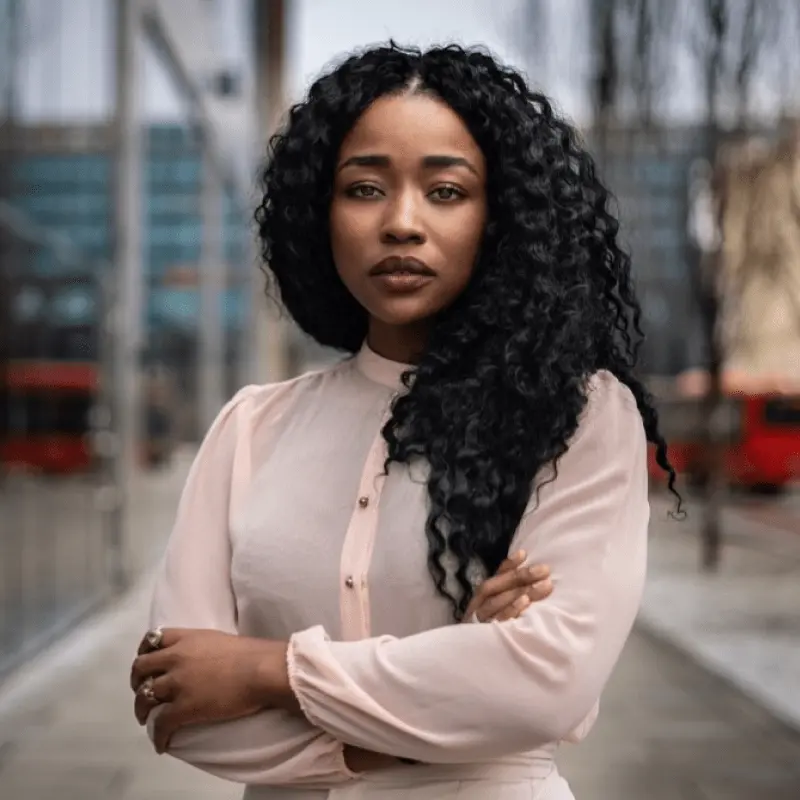Many might know of the term the Psychological Migration Process. I understand the notion and have studied different variations of it. Essentially, this process occurs, in many cases, when moving to a new country:
- Feeling of positivity about the new country.
- Depression after a while and negative thoughts about the new country manifests.
- Eventually, life begins to stabilize.
Having the knowledge is one thing and having the tools to process the day to day funk is another. I should state that Norway was an especially difficult country for me to feel well and alive in. I should also state that prior to living in Norway, I had lived and worked successfully in countries in Africa, Europe and Americas. I had also travelled to countless other countries. So, I thought I was prepared. I thought I had the tools. Boy was I wrong! Moving to Norway, threw me for a loop. I came here of my own free will and as a “love migrant” to a near perfect human and calm Norwegian man. Having visited Norway on some occasions over 10 years prior to my final decision to move here, I thought I understood what to expect of the country as detailed in my ‘essentials’ below.
Essentials: Warm winter jacket. Sturdy and preferably unfashionable winter shoes. Colors of clothes should mainly be varying versions of black and white. Winter Sports. Fish. Grey days. Learn Norwegian. Accept seeing the sun in the winter on a few occasions. Fish. Great social system. Great transport system. Good healthcare. Fish. Mostly fit people. Great work life balance. One entire year of paid maternity leave (hallelujah!!!). Fish. Free education system. Safe country to raise children. Social welfare state. Equal opportunity. You catch my drift. The list goes on.
As in any other country, I had done my homework before moving. I didn’t expect roses thrown at my feet the minute I landed, but I did expect feeling like I had a fair chance. My first reality check in Norway was on how difficult life was for a foreign, opinionated, highly-educated and experienced professional like myself. I felt entitled to opportunities in the job market, as I had successfully been able to secure a high level (and well paid) job in every other country I have lived in (and not all had English as their first language).
In this regard and as expected, I was able to secure interviews in Norway, based on my professional preference and qualifications (something of a luxury, as I came to learn). But I struggled with the interviewing process. I felt judged—based on my appearance, assertiveness and the confidence I had in my skillset—and undermined by the type of questions I was being asked. In some cases, it felt as though they were stunned by my CV and the face behind it. Consequently, the line of questioning became nonsensical.
I was once asked by a middle-aged man whether I had children or was planning to have children. Another middle-aged man laughed when I said I could learn to speak Norwegian within a year if I had the incentive to do so (he didn’t believe me). Another asked how I thought I could fit into the work place, because, well I was somewhat “different” and “exotic”. As I moved up along the interview process, the irrelevant questions and assumptions got worse. I’ll spare you.
Before anyone had a chance to offer me a job or send me the generic rejection letter, I sent in a polite email, thanking them for the opportunity, but saying I had decided to pursue other avenues for employment. So, I started my own company, and 6 months later, I still had not secured a single paying project. Everyone/company wanted me to do mountain pile of work either for free, a negligible amount, or on commission.
Meanwhile, my non-existent social life was crumbling. I had always prided myself on being able to exist on my own. And on most days, a good book or a Netflix binge session is all the companion I need. I learned early on in my life not to get too attached to people, because either they moved away, or I’d move away. Obviously, I didn’t strictly adhere to this because I met a man, fell in love with him, and as a show of my love, settled on a semi-permanence that is Norway.
But I started to feel lonely. Actually, alone. In the little social spaces I had, which was made up of a few inherited friends and family members (via my husband), I heard appalling views on immigrants, Muslims, women who willingly chose to wear the hijab, people of Pakistani, Afghanistan Eritrean, Sudanese, and Ethiopian heritages, and on race. But the people facilitating such sentiments were always ‘kind’ enough to remind me that they weren’t referring to me. Because “I am different” from the rest. After each episode, my spirit sank a little more.

On one occasion, my husband and I were out with two of his friends, and as people in child-bearing age, the topic of children came up. One of the guys there, went on to say we’d have a beautiful (biracial) baby, and it would be great if the baby had my husband’s skin color (he is a White man and I am a person of color).
I was once told by a well-meaning relative, when my husband and I were on an apartment hunt to stay away from Grønland in Oslo, that it was not a good or safe place to live. It was full of wayward and untrustworthy people.
Unsurprisingly, this relative also told me that I must not want my children to secure jobs in Norway based on their perceived names. This happened on a day when my husband and I were playfully discussing future children names (to her hearing), and I had expressed a preference for ethnic names (from my nationality) with strong meanings. Needless to say, if there was even a tiny chance that I’d be swayed to my child having a Western or “White/Norwegian acceptable” first name, that ship has sailed to a faraway land with her comment.
Anyway, I have had a few bouts of depression in my adult life and usually as a result of something specific—death in the family, the end of a relationship, homesickness, being overworked—but never had I in my life felt depressed about something I couldn’t grasp or put my fingers on. There was no particular start date or specific experience that was the last straw, there was no tipping point. It just crept in slowly, like the Norwegian winter and without much notice, I was snowed in. It felt like I was attached to a bungee rope for months, continually tossed up and down, without being drawn to safety. My feet could not touch the ground. And no one could see me. No one was hearing me scream.
I started to get angry and disillusioned. When I tried to speak up, I felt silenced, unheard, unseen. I mean, to be clear, the Norwegian people around me would never say, “Shut up! You are an idiot for saying that!” and sometimes, I wish they did. But it was something in what was left unsaid that made me start to shrink. To say less. To show less passion. To become invisible. To be agreeable—otherwise I would reflect poorly on all immigrants or foreigners in Norway. I would be ungrateful.
I didn’t immediately begin to feel negatively about the country as the Psychological Migration Process stipulated – that came later (and if I may say, it was both a necessary evil and next step to my healing process). But I am getting ahead of myself.
Initially what I felt was negative sentiments towards myself. My self-hatred intensified. I could not recognize who I saw in the mirror. I was weak. I was nothing. All my education, worldly experiences, smarts and privilege were useless. I could not get myself out of the rot. I was freefalling. Self-doubt and shame showed up and took a primary seat in my life. I didn’t trust myself to speak, ask questions or make a phone call. My partner had to do these things for me. I didn’t trust myself to shop for food. My partner had to be present. I couldn’t take a train or bus to job interviews (when I was still interviewing) or networking events, so my husband would drive me. I was willingly allowing myself to become emotionally paralyzed. My thought process was the following…
“This is happening to me! A child genius touted for her resilience, perseverance and Grit! A multiple academic degree holder (acquired through a ridiculously expensive international education at that). I have a wealth of professional experience spanning three continents. The executive director of innate confidence, a master-in-chief of human and personal pep talks. A post-doctoral degree holder in all things solution-finding and a poster child for when life hands you lemon, make lemonades. I did this. I ruined me. I am such a disgrace. I am spiraling out of control. I gave up a good life, independence, my confidence, a respectable job, a happy social life with informed friends and open-minded people, and a livelihood in what I considered a better country for a man. Fuck me!”
Lessons Learned:
Written by E.





This story reminds me of myself. Wish I could have a coffee with you.:)
Hi Claudia, are you in the Oslo area? I’ll be happy to have coffee with you :).
WoW, E I am surprised to read this, I feel very identified. I came to Norway for love, my fiance is Norwegian, although I am happy with him, these months are being very difficult because I dont know the language and I havent felt very well. I am Spanish, we Spaniards are very sincere and affectionate people, social life there is different, going out with friends is something we do almost daily, family life is very close. 😅😣
Yes! Sincere and affectionate! I almost forgot that even existed…im south african and i live further north 🙂
Hei there! I understand you well. I am in Sandefjord on my university summer break, living with my boyfriend. It is hard to adapt. I am from Romania, a country that i do not like for its people and system. But in these months of me staying here i have been missing the weather back home (higher than 35°C) during summer, missing the beach where you can get some tan and not have the forest behind you cover the sun, swimming without stressing of jelly that can sting, the constant rain here has been pretty bad to my feeling of… Read more »
Hi Nenciu, please excuse my late response. I have been busy with work. Thank you for sharing. I hope your time in Norway got better and that you made more friends. Norway can be hard for newcomers especially in the Winter or when the weather is bad, but it does get better. Happy New Year! I hope 2020 is a prosperous one for you and that when you move in July, you will love it! 🙂
Really appreciate reading you…
It hurts finding ourselv with a lot of perplexity and unhappy in the most “happiest” country in the world.
As you wrote in your article: our live didn’t start here and (hopefully) is not going to end here.
Thanks for reading Ventiola and sorry for the late response. I have been busy with work. Happy New Year! I hope that 2020 is bright and prosperous for you.
This is like seeing myself in a mirror! I would really love to meet E.
Thanks for reading Sebastian and sorry for the late response. Happy New Year! I hope that 2020 is off to a great start. And if you are based in Oslo, happy to arrange a time to meet :).
wow. I’ve been (still going?) through the same. I can relate so much to “but never had I in my life felt depressed about something I couldn’t grasp or put my fingers on”. Bulls eye right there. I’ve lived in quite a few countries and moved to Norway on my own free will – not for love, just because I really liked the country (I lived in a Norwegian village for a winter season some years ago and wanted to move back). I came to Oslo 2 years ago and those 2 years have been so harsh for reasons I… Read more »
Hello Karolina, Happy New Year! And please excuse my late response. Life and work got in the way. Still open to having a coffee? 🙂
I moved to Tromsø 7 months ago, my boyfriend was supposed to come “have a look” and probably move in with me, but instead, we broke up on the last night of his visit. Then he refused to let me have our dog. I’m loving Norway, but it’s been hard to enjoy it when other bullshit happens in your life. On another subject, I don’t have the ethnic problems you referred. I came here for an interview and came back for a contract. Everyone in my company and in the city are super nice and warm, willing to help. And… Read more »
Hello Isabel, nice to read from you! Sorry to hear about your break up and not having your dog.
I am happy to hear that you are thriving and yes, I hear that Northerners are much nicer. My husband is from the North of Norway, so I think there’s some truth to people being nicer and warmer up there :). Happy New Year! I hope 2020 is your best year yet.
Thank you so much for sharing your experience so authentically. After 5 months in Oslo with my Norwegian fiancee, I too am beginning to feel depressed. This is somewhat usual for me after a big move until I have found a job and a tribe of friends in my new hometown. But this sadness is definitely also due in part to cultural differences. The Norwegian belief that they live in a perfect utopia creates an arrogance which, in my experience, causes this place to be a little less lovely. It also causes Norwegians to overlook issues in their society that… Read more »
Hello Stephanie, it is nice to read from you. Thank you so much for your input. So sorry to hear that you are starting to feel depressed. I certainly hope that you are feeling better, and that the holidays and New Year has brought a silver lining and some sunshine to your days. Your words ring true to me to this day but it does get easier. And yes, making Norway home requires a lot of time, resourcefulness and resilience. I too hope that you will create a great life with your husband here in Norway. Experience tells me that… Read more »
Hello, everyone. I’m Norwegian, and agree with everything everyone has said in this discussion – imagine that. I’ve never felt home here at all – ever. I don’t understand “my people” in any way, but when travelling, everything falls into place. People love me, I’m filled with positive energy, and feel reenergized. My family has an international background, so my mindset has always been different. To summarize my view on Norway: The best place in the world to build your financial future, finished. Most people here live a lie, and are slaves of The Western Wealth System; you are only… Read more »
Kris,im south african. My mother was Norwegian but i grew up in africa, amongst nationalities from every corner of the earth. I am forty, i have lived here for twenty years. I am not regarded as acceptable social company in this country, but overseas i make friends with ease. Thankyou for your honest opinion with regards to the social climate, i feel less shitty after reading it. Many people are superficially aquainted with me. Almost no one really knows me.
Half Norwegian/Filipino and I 100% stand by this. It becomes so much more evident once you have exposure to another culture outside Norway.
Interesting read. I understand the depression and isolation. I am a New Zealand man married to a Norwegian woman, and I understand the social isolation here. I find, for example, the other parents at the barnehage are “face” polite but it feel as though I am kept at arms length. It’s the same socially. Although many are pleasant enough, there seems to be no real warmth or connection. It’s so hard to put a finger on it. When I lived in the UK, I made friends easily (Kiwi humor being very similar to sarcastic British humor). Still finding it a… Read more »
From a south african whos lived here since 1999, i can tell you without doubt that it probably isint you mate..
I feel exactly the same. I am a musician. Had a performance Certification from Carnegie Mellon University, a Bachelor of music from San Francisco Conservatory of Music and a master from Boston University. Also I hold a small degree in accounting and economics and two years of management at the San Juan University. I have played in American Wind Orchestra. Teatro Colon of Buenos Aires, and I am still holding my principal horn position at Argentina National Symphony. I have been trying to get a job in Norway because my wife has a job here. My social life is 0.… Read more »
Hi Leo! As a norwegian having spent many years travelling around in the US and Latin-America, your words resonate with my own experiences. As an anthropologist and teacher I do my utmost to encourage my students to travel and gain some perspective and awareness of the outside world. I married a colombian, and our 20 yrs old daughter feels more at home in Colombia than here, although she too appreciates the welfare state which allows her to get an education without ruining her parents:) I live in Northern Norway, in the epicentre of the northern lights, and find that people… Read more »
I have been in Norway for 6 months and I deeply regret coming. I don’t want to be here but my partner and I have a 3 year plan. People here have been so aggressive over little mistakes. I’ve been yelled at more than once and seen people treat my white Nordman husband with more respect than me. There are times when I am afraid to go out and do simple things without him for fear of being attacked. They assume because I’m black that I must be a refugee or 2nd generation (nothing wrong with that btw) and they… Read more »
i am so astonished that how similar my experiences are with you in particularly to nordic countries . Recalling the times when i was soo frustrated with everything while talking to my therapist and she replied that i should be thankful as Norwegians are way worse than us . We are cold , unwelcoming ,reserve and we hate one another more than we hate foreigners. And i was shocked because there was almost an underlying tone of shamelessly proud and can help it” there. But i took it all my experiences in these countries as a challenge that was helping… Read more »
Waw i am very glad to see this! I thought i was alone. My husbnad is also Norwegian. We have both lived in Asia, Ireland and now Norway. But since we moved to Norway i have never felt this depressed!
I’m so glad I’ve found this page. I was born and raised in France, I’ve been living in the US since 1990. It’s a crazy place. France, I’m not sure about it anymore. I thought Norway would be a place with a strong social cohesion, where people are simple and friendly, but I guess I was wrong. I seems that it’s a beautiful place in the summer, but the main problem there might not the the weather but the people?
Dear E, I see this was written 3 years ago, but thought i’d take the chance. I would really like to meet and connect with you. I recently became a mother and I feel like I am alone in Norway. Anyways, I hope we could talk one day cause I feel like we should support each other xx
I was thinking exactly the same and stumbled upon this post by searching something along this topic on Google!
Thanks for sharing and up for coffee!
Hi, this post was made 5 years ago but I just found it. I don´t have the same background as you with carrear but mine was not so bad, however here in Norway means nothing. I´m in the very north since 2 years ago, fell in love to a Norwegian man and left my job to be here with him, I´m from Colombia. I´m absolutelty feeling alone and lonely. I am struggling to learn the language, I can read it but I can´t hold a conversation. I got bullyed and got sick too many times at work, and injured with… Read more »